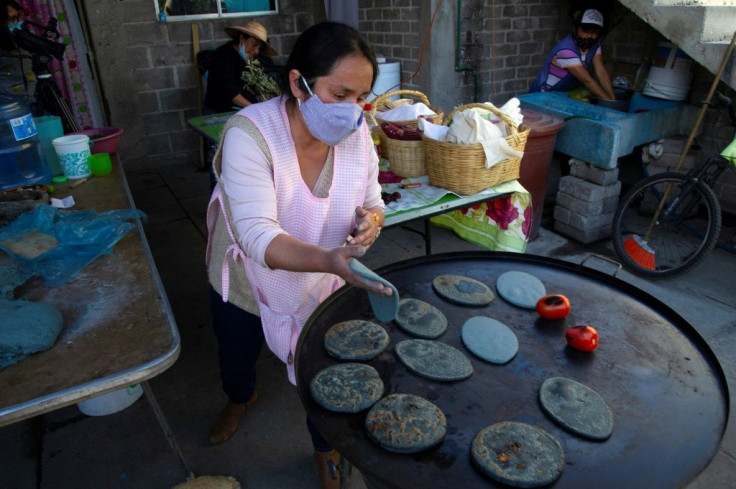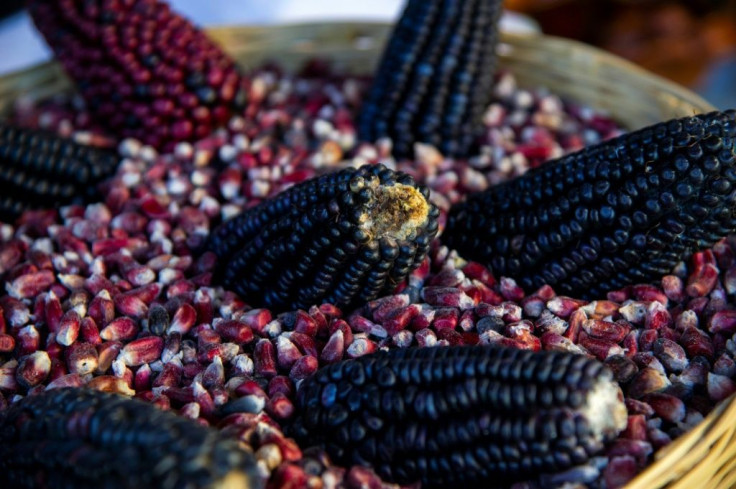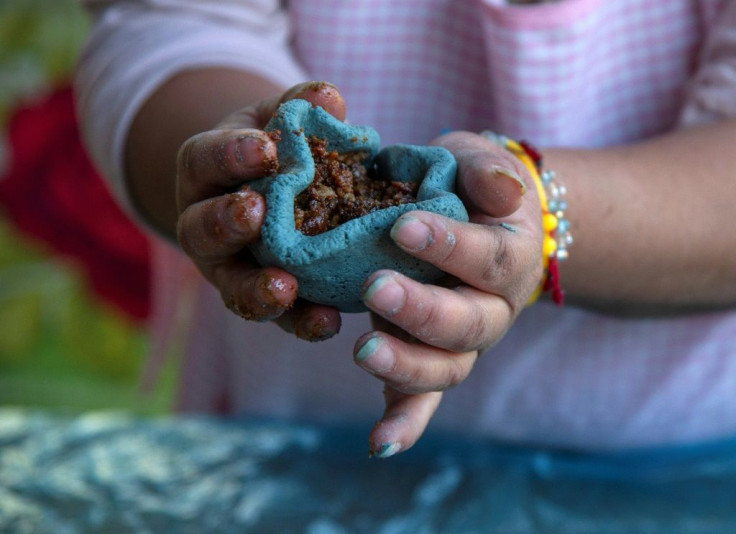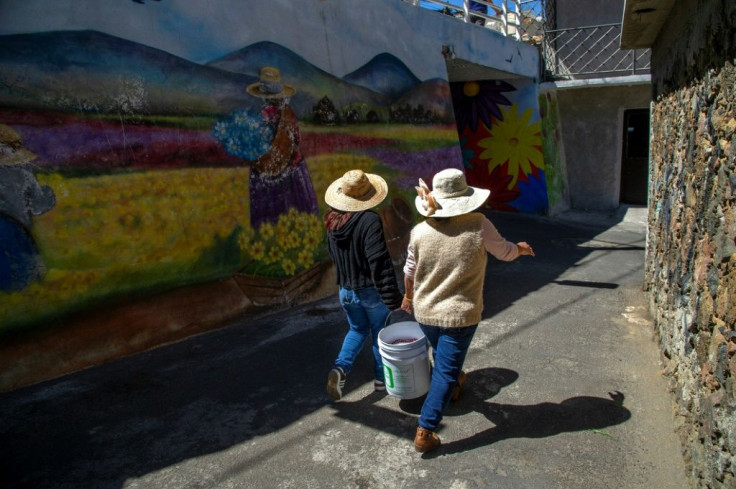Cooking Collective Helps Mexican Women Escape Abuse
On the outskirts of Mexico City, a group of women prepare tortillas in a community kitchen that has provided sanctuary from gender violence and the economic fallout of the pandemic.
While one lights the stove, others grind corn, knead dough and wash vegetables.

The Latin American country, long beset by a culture of machismo, is in the grips of a femicide crisis with 10 women murdered every day.
The pandemic, and the confinement it forced on them, has been a wake-up call for some women facing abuse at home.
The members of the Mujeres de la Tierra (Women of the Land) cooperative now sell tortillas, tamales and other maize-based delicacies through social networks.

"Unfortunately we have all suffered from violence of some kind.... psychological, physical, financial violence," said Alma, 31, who like the others did not want to give her full name.
The project has given the women new hope, since the coronavirus robbed them of their jobs and exposed them to increased domestic violence, which they prefer not to talk much about.
"We're very lucky to be able to work with what the land gives us to produce and escape the violence that we experienced at home," said Alma, standing next to a still-smoking stove.

In recent years, Mexico has seen a relentless increase in gender violence, and the pressures of the pandemic have only made things worse.
Last year, there were around 940 femicides, while the authorities received more than 260,000 calls for help because of violence against women, the most in five years.

In March 2020, when the pandemic arrived in Mexico, the members of the collective found themselves among the many women put out of work by the crisis.
According to the United Nations Economic Commission for Latin America and the Caribbean, the participation of Latin American women in the labor market fell from 52 percent in 2019 to 46 percent in 2020.
Gris said that when times were tough they turned to what they knew: putting tortillas and other corn delicacies like tlacoyos and gorditas on the grill.
Mexico's economy contracted 8.5 percent in 2020, the worst slump since the Great Depression some nine decades ago.
But the economic gloom cannot overcome the sense of happiness in the kitchen, filled with music and brightened by purple corn on the cob.
"Our self-esteem is sometimes really low with so many problems, said Gris, a 34-year-old mother of four.
"Then suddenly there's good news," she added. "It motivates us to say: yes we can. There will be ups and downs."
The trust they have built has made it possible for the women to support each other, each in their own way.
"It was our needs and the stark realities that made us say, in an act of desperation: enough!", said Chio, 33.
Leticia, 39, said the cooking collective and its spirit of solidarity have brought many benefits.
"I feel very good because this project has given me confidence as well as financial and emotional security. It has given me many things," she said.
© Copyright AFP {{Year}}. All rights reserved.




















